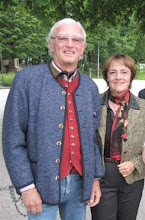A book review essay for Peacehawks by Jamie Arbuckle
… the dreamers of the day are dangerous men, for they may act their dreams with eyes wide open, to make it so. This I did.
T.E. Lawrence, Seven Pillars of Wisdom
Hero: The Life and Legend of Lawrence of Arabia, by Michael Korda (Harper Collins, New York
Other books discussed in this essay:
Seven Pillars of Wisdom, by Lawrence of Arabia (Hazel Watson and Viney Ltd, Aylesbury, Bucks, 1926. Illus, 700 pp [Penguin Vers.])
Lawrence and the Arabs, by Robert Graves (Jonathan Cape , London
Introduction
Did we really need another bio of Lawrence
There has for nearly 100 years been heated controversy about Lawrence
… I have found two sharply contrasted currents of opinion as to Lawrence
That first group, Liddell Hart might have added, included such as David Lloyd George, Winston Churchill, Field Marshall Allenby, Marshall of the Royal Air Force Trenchard, Gertrude Bell and, of course, Robert Graves and Liddell Hart himself.

